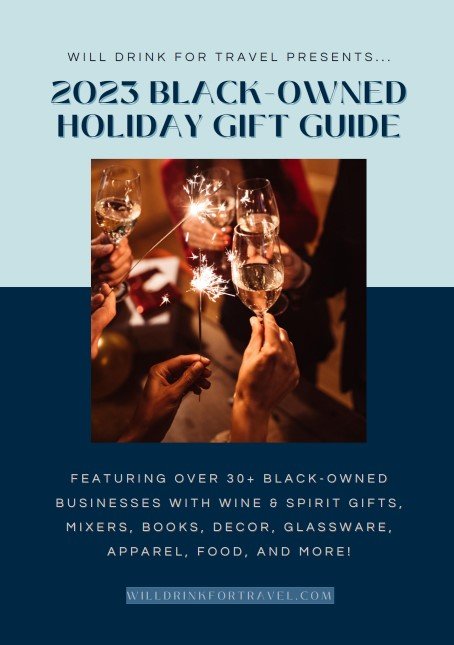It’s taken me a long time to write this post. I had the idea to write it during my travels in Tanzania, when I was slighted by a Tanzanian who showed preferential treatment to White travelers (which I don’t plan to discuss). I wasn’t sure if I was going to publish this post and had actually decided against it at one point. But I’ve seen some recent posts on Facebook and Twitter discussing whether or not Black Americans should celebrate the 4th of July because on July 4, 1776, our ancestors were still enslaved. Let me preface this by saying that Tanzania is the first country (but not last!) I’ve had a chance to explore in Africa. I loved every single second I was there, and hope to return one day soon. And in no way have I forgotten the impact of slavery, including how Black Americans are still affected by it today. These are just my thoughts and I most certainly welcome yours.
While spending time in and traveling throughout Tanzania was one of the best experiences I’ve ever had, it was also one of the most eye-opening in terms of how people see me, and ultimately how I see myself. When I came home after my 2-month trip, in addition to wanting to hear all about my adventures and experiences, a few friends asked me if I was welcomed in Tanzania with open arms because after all, I was returning to the “Motherland.” My answer was always “sure.” I never really knew how to answer that question. I think the answer people wanted to hear was different than what my truth actually was. I must admit, it was easier for me to blend in with the locals than my White colleagues. I feel like there was a common bond that I shared with the people I met while I was there. Locals were more likely to talk to me…maybe because they may have felt more familiar with someone who looked more like them, just as I did with them. However, that does not mean I fit in either. Visibly I was Black, but they could also tell I was not native to Tanzania. And that’s for various reasons, whether it be my clothes, my hesitation when looking for a restaurant or shop and most obviously, my accent and inability to speak fluent Swahili. As soon as I opened my mouth, they knew I was different. I may have looked like them, but I was still not Tanzanian. I was not African.
Whenever you travel and meet people from different places, the first question during conversation is usually “Where are you from?” This was actually one of the first phrases I learned to say in Swahili. Saying where you’re from is your badge of honor. It’s how people relate to you. It’s a part of your human experience. Most times when conversing with a Tanzanian for the first time, they never guessed I was from America. Kenya, South Africa, Zimbabwe and Ethiopia were some guesses of my home country. Many were surprised to hear I was American. I was a Black American. When I caught a flight from Dar es Salaam to Arusha, I sat next to a Tanzanian man who was about my age. The conversation went something like this:
Him: Where are you from?
Me: America.
Him: Where are your parents from?
Me: America.
Him: No, I mean where are they from originally?
Me: America.
Him: *blank stare*
I was actually surprised that he was so surprised. After all, Black Americans were, until recently, the largest minority population in the United States. And while they are not necessarily the best examples, I found that many Africans were familiar with Black American rappers, both well-known and not so well-known by other Americans (someone knew who Tyga was! If you’re American and aren’t familiar, don’t worry, you aren’t missing much.). Whether it’s a good or bad thing, music is a universal language and the only images that some people in the world have of Black Americans, is of famous rappers and musicians. That conversation stuck with me because it was rather telling about how people in the world view Black Americans.
When people hear you’re from America, some instantly assume you are wealthy or have access to money. The United States of America is supposed to be the land of the free and the home of the brave. People migrate to the United States because of the bountiful opportunities in education and employment, and for the liberties and freedoms that are not available in other parts of the world. In addition to Tanzania, I’ve recently visited Romania and Turkey, both countries beautiful and unique in their own ways. Much like people’s expressions in Tanzania, many people were surprised to learn that my friends and I were Black women visiting from America. Black people have been ostracized, looked down upon and treated unfairly not only in the United States but all over the world. So for Black American women to be across the world, on vacation no less, is almost a wild thought to some.
In no way am I saying that the United States is perfect and everyone wants to live here because I do not believe either of those statements to be true. In fact, at this point in my life I am seriously considering moving or traveling abroad long-term. As Black Americans and with great reason, we are still facing an uphill battle in terms of race relations in this country; a country with which we have such a complicated history. But shouldn’t I be proud to be from the country where I was born and raised? The country where my parents have worked hard and done better than their parents, and their parents before them? The country where I’ve been blessed with a great education and opportunity to live a successful life? No matter where in the world you’re from, it is my belief that you should be proud. It will forever be a part of who you are. Why not embrace it?
As a country we have made some strides in the right direction of racial equality, but no doubt we still have a very long way to go. I feel like I could go on and on about not only being Black, but being a Black woman in America…whew! While I would never want to be anyone else, it’s not always easy doubly fighting people’s preconceived notions about who I am, at home or abroad. However, when I’m traveling and someone asks me where I’m from…where in the world I was raised…where my passport was issued…what I am…my answer is always “American.” I am an American. While America has a sorted history, it is still MY history. My American history…and I wouldn’t have it any other way.







